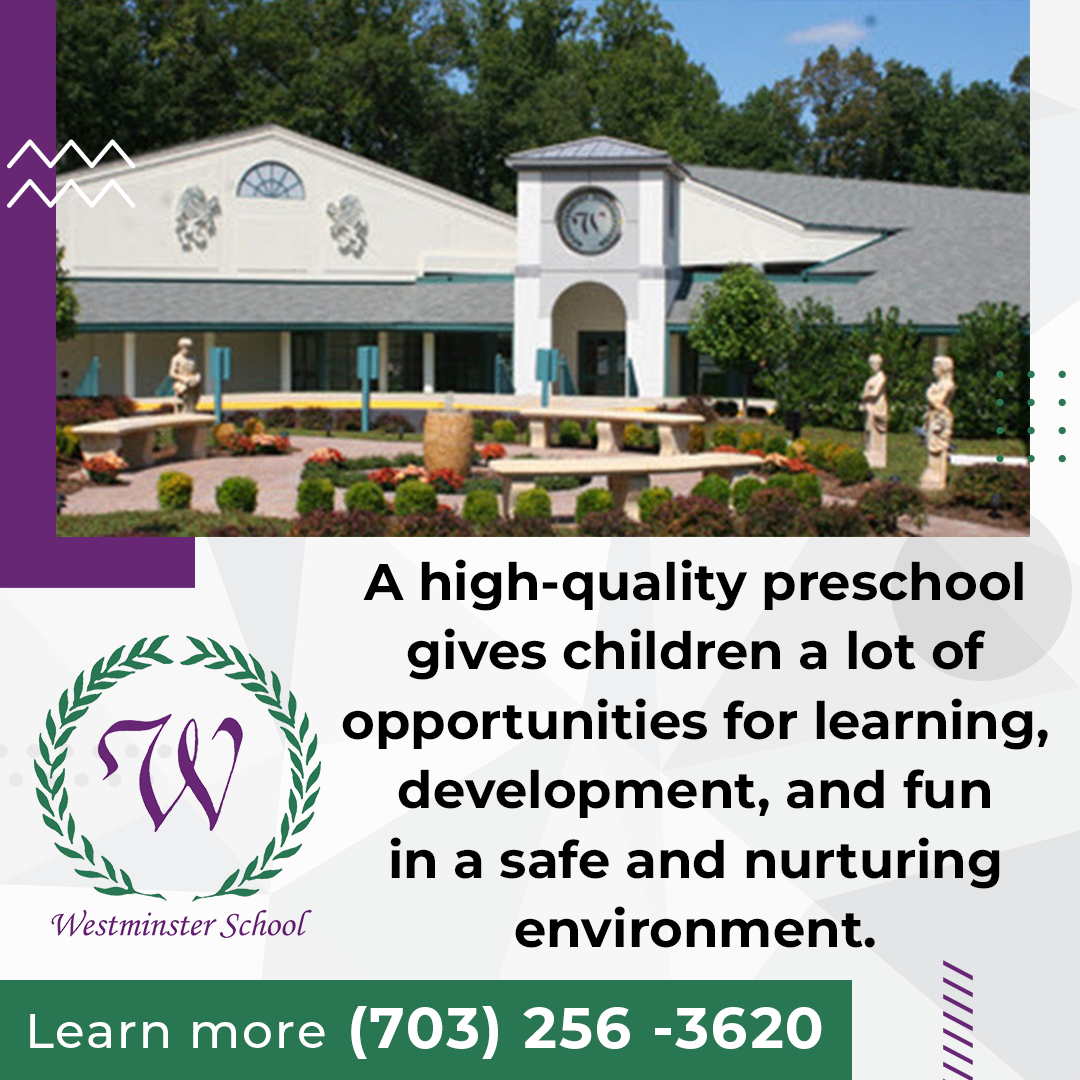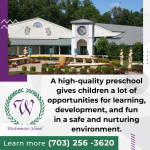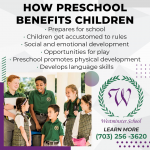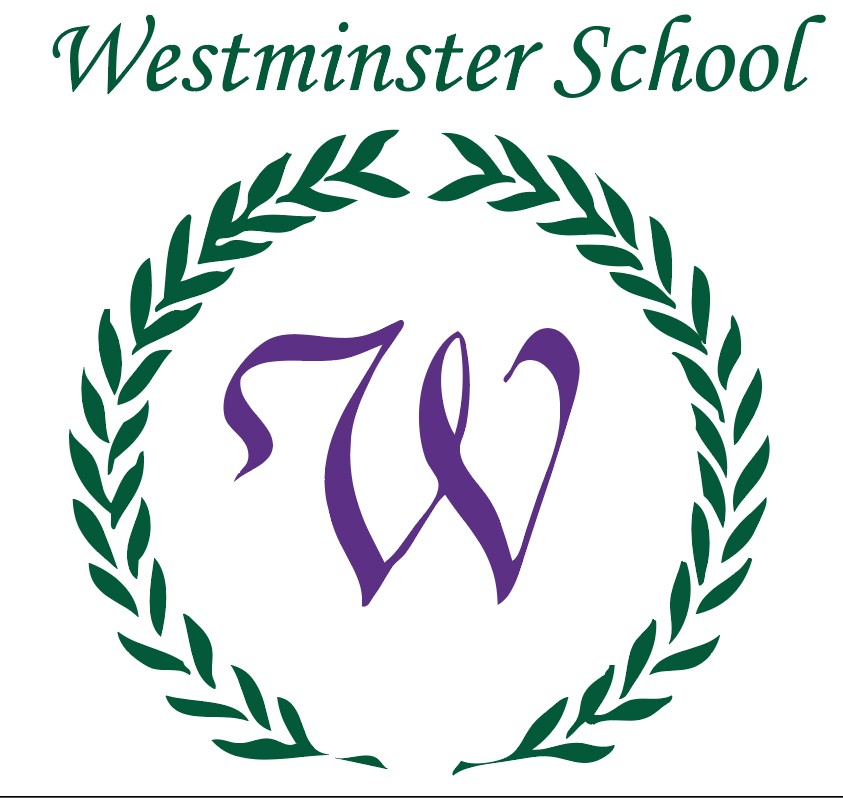While raising children is a fulfilling experience for parents, it can also be overwhelming. There’s so much to consider, including whether sending children to preschool will be helpful. If you’re on the fence about the benefits of preschool for your child, here are six key advantages to consider.
How Preschool Benefits Children
.png)
1. Preschool Prepares Children for School
A preschool education prepares students for the more structured kindergarten environment. Even part-time preschool programs can smooth the child's entry into kindergarten.
Preschool exposes children to:
- Following a routine
- Using hygienic practices
- Taking responsibility for personal belongings
- Practicing interactive skills
These all help children when they start kindergarten.
2. Children Get Accustomed to Rules
Listening skills and the ability to follow instructions take time to develop. In preschool, young children get that practice.
They learn to follow basic instructions, including standing in a line, washing hands before meals, and taking directions from teachers and other trusted adults.
The Westminster School preschool program supports this by having a daily schedule. This ensures children wash their hands before and after every transition and tabletops are cleaned before and after snacks, center time, and lunch.
3. Preschool Promotes Social and Emotional Development
In preschool, a lot of energy is focused on developing social and emotional skills rather than just academics.
Children get an opportunity to do all the following:
- Learn how to share with their peers
- Take turns during games and activities
- Empathize with their friends
- Exhibit emotions acceptably
These skills help students prepare for kindergarten, elementary school, and beyond. There are also long-term benefits of preschool, including advantages in language, literacy, and math.
At the Westminster School private preschool, the Griffin Academy, children are encouraged to socialize with others and to be well-mannered, kind, and respectful.
4. Preschool Offers Opportunities for Play
Play is the child's work. It’s an integral part of a good preschool education, and it’s a very effective way for young children to learn.
Children gain knowledge as they play with objects and interact with others. For example, children can learn shapes and related concepts, such as putting two squares together to make a rectangle. Role-playing or symbolic play, such as playing house, helps children learn how to communicate their ideas and feelings, to resolve conflicts, and to feel competent.
During preschool play, children develop leadership and group skills, build resilience, and learn how to cope with circumstances. Preschool offers children a safe place to explore and to get exposed to different subjects, creative activities, and literature.
Children at Westminster School’s private preschool have time for independent or group play first thing in the morning. They also have recess, which allows for thirty to forty-five minutes of outdoor play, if the weather permits.
5. Preschool Promotes Physical Development
Preschool offers children an environment to develop their motor skills through activities, such as drawing, threading beads, cutting out shapes, and playing outdoors. As children begin holding crayons or colored pencils and zipping up their jackets, their fine motor skills improve as well.
To promote large and small muscle development, the Griffin Academy offers physical education. Children learn control, balance, coordination, and spatial skills, and they also develop the foundation of positive health habits.
6. Preschool Students Develop Language Skills
Children between the ages of three and five expand their vocabulary vastly. Preschool teachers help promote language skills by introducing new words during academics, art, and play sessions. Teachers can urge children to answer in full, descriptive sentences by asking insightful questions. Reading, singing, acting, and role-playing all offer opportunities to develop language.
To promote language development, the Westminster School preschool has:
- A classroom library
- A school library
- Independent library time
- Daily read-aloud sessions
- Book fairs
Language arts are part of the curriculum and include listening skill development, pre-reading, and phonics-based reading skills.
Why Choose Westminster School, a Private Preschool in Northern Virginia?
A high-quality preschool gives children endless opportunities for learning, development, and fun in a safe, loving, and nurturing environment.
.png)
The Griffin Academy of Westminster School is a private preschool located in Northern Virginia. The program focuses on a balance between play and structured learning opportunities, providing the perfect environment for children to begin early education.
The Griffin Academy has a team of well-qualified teachers, a student-teacher ratio that never exceeds 10:1 per class, and an exceptional curriculum. This ensures every child enjoys well-rounded intellectual, social, emotional, and physical development.
Parents looking for a private preschool in Northern Virginia can call (703) 256-3620 to schedule a tour and to learn more about the Griffin Academy at Westminster School.
































